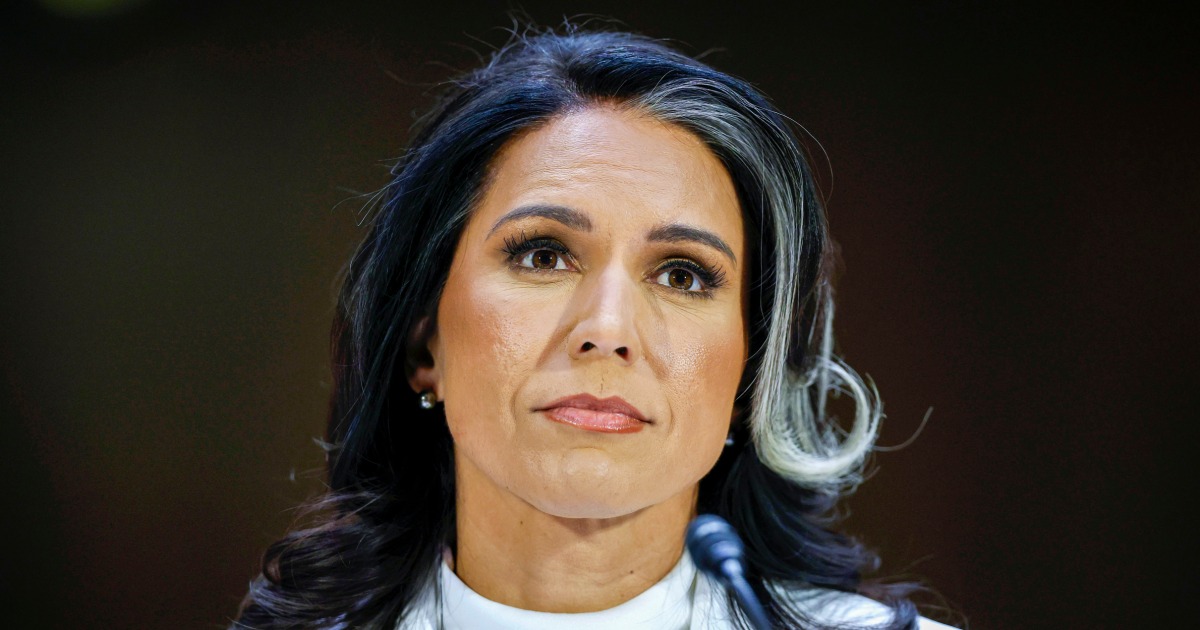WASHINGTON — The GOP-controlled Senate on Monday voted to advance the nomination of Tulsi Gabbard to be President Donald Trump’s director of national intelligence, putting her on a path to be confirmed this week.
The party-line vote was 52-46, with all Republicans present voting in favor of Gabbard. Sens. Thom Tillis, R-N.C., and John Fetterman, D-Pa., did not vote. Last week, Gabbard’s nomination as the nation’s top-ranking intelligence official squeaked through the Senate Intelligence Committee on a party-line 9-8 vote.
“The intelligence community needs to refocus on its core mission, collecting intelligence and providing unbiased analysis of that information,” Senate Majority Leader John Thune, R-S.D., said in a floor speech Monday. “That’s what Tulsi Gabbard is committed to ensuring if she is confirmed to be DNI, and I believe she has the knowledge and leadership capabilities to get it done.”
A final vote on Gabbard would take place at midnight Tuesday, unless all senators reach an agreement to vote sooner. After that, Thune said the Senate would immediately hold a procedural vote on the nomination of Robert F. Kennedy Jr., Trump’s pick for health and human services secretary.
Monday’s vote came despite concerns from Democrats and some Republicans about her 2017 secret meeting with then-President Bashar Assad of Syria; her past efforts to repeal a powerful government surveillance tool, known as Foreign Intelligence Surveillance Act’s Section 702; and her previous support for Edward Snowden, a former government contractor who leaked classified information to the press about those spying programs.
Before her nomination, Gabbard had argued that Snowden should be pardoned. But at her Jan. 30 confirmation hearing, Gabbard reversed course, saying she would not push for Snowden to be pardoned or receive clemency, even as she refused to call the former National Security Agency contractor a “traitor” when pressed by GOP senators.
In addition, Gabbard backed off her sharp criticism of Section 702 during the hearing, calling it an “crucial” tool after Congress passed new protections last year.
But some of her critics were unpersuaded.
“Nothing less than our national security is currently on the line. I have nothing but respect for Ms. Gabbard’s many years of service to our nation both in uniform and as a representative for Hawaii,” said Sen. Mark Warner, D-Va., the vice chairman of the Intelligence Committee.
“I don’t question Ms. Gabbard’s patriotism; I oppose her nomination because I question her judgment.”
The director of national intelligence oversees the 18 agencies that make up the U.S. intelligence community, including the Central Intelligence Agency and National Security Agency.
Gabbard, 43, an Iraq war veteran, has served for more than two decades in the Army Reserve. She had previously been a longtime Hawaii Democrat, serving in the state House and on the Honolulu City Council. She went on to represent Hawaii in the House of Representatives from 2013 to 2021. After she unsuccessfully ran for the Democratic presidential nomination in 2020, Gabbard endorsed Biden over Trump.
But she soured on the Biden administration and left the Democratic Party in 2022. Last October, shortly before the 2024 election, Gabbard announced she was joining the Republican Party, endorsed Trump for president and appeared with him on the campaign trail.















